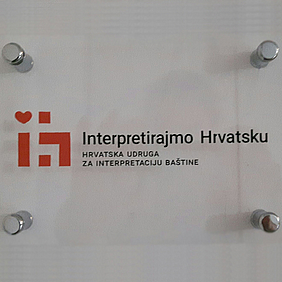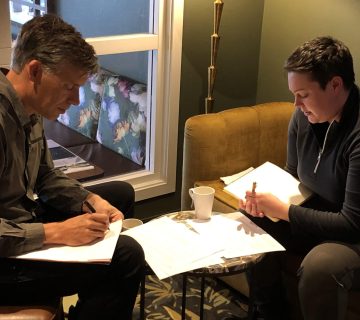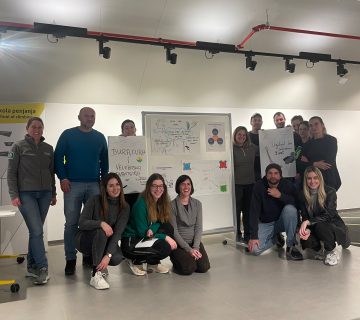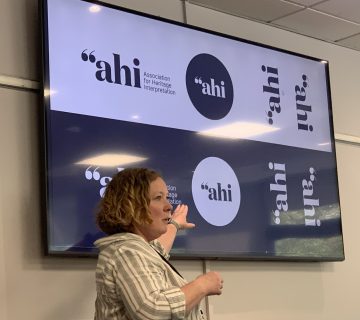Two months ago, the establishment of Interpret Croatia, with a similar mission to Interpret Europe, representing the voice of heritage interpretation on the national level, became a reality.
Interpret Europe – the European Association for Heritage Interpretation, has grown exponentially over the last six years. From just five European attendees at the NAI’s (National Association for Interpretation, USA based organisation) international conference in Athens (Greece) in 2009, who declared an intention to create a European based organisation devoted to heritage interpretation, Interpret Europe now is coming close to 350 members. While this may still sound quite low, we have to take into account that other heritage organisations have decades more history than ourselves with only six years of existence. Even more impressively, the growth of our organisation has doubled over the last year alone, which means that we/ Interpret Europe have finally made a breakthrough in starting to reach all those interested or involved in heritage interpretation. This ‘market’ is literally counted in the tens of thousands around Europe who are aware, semi-aware, becoming aware or even still not aware the core of their job is in fact heritage interpretation (no matter whether it is natural or cultural).
This development is very positive and I sincerely (as a personally involved and interested worker) applaud Interpret Europe for it. Particularly since Europe, as anyone who is operating on a European scale knows, is not always the easiest context in which to work. There are language barriers, there are mentality barriers (fictional or real), there are economic and social discrepancies and so on. These barriers are not only within the European Union but within the wider Europe, as defined by the council of Europe (a definition Interpret Europe tends to embrace). These challenges (if they are challenges at all – we could see them more as opportunities; in diversity we are united and stronger), offer a unique opportunity to lobby for, to analyse, discuss and, from time to time, to criticise (if needed) existing practices and theory concerning heritage interpretation in Europe (and beyond), as well as those with a regional, or national setting.
Sometime during and between the 2012 Interpret Europe Conference (in Pisa, Italy) and the 2013 conference (Sigtuna, Sweden), focus was put on an idea of setting up/ creating national heritage interpretation organisations under the umbrella of Interpret Europe. Part of the challenge was, and still is, the existence of some well-established heritage interpretation organisations (older than Interpret Europe) on the European continent, e.g. the UK based AHI (Association for Heritage Interpretation). However, in the majority of Europe (whichever definition of the continent you choose) such organisations do not yet exist or, if they do, do not have the same level of influence as the AHI has in the UK. Putting aside here situations in other countries (which will be reported on in future editions of this newsletter) we are coming close to the title of the article.
In Croatia, heritage interpretation is, as it stands today, not officially recognised as a profession, and heritage interpretation plans or heritage interpretation strategic documents are only sporadically officially requested for new interpretation projects in e.g. national parks and so on. The situation is marginally better with regard to museums’ permanent exhibitions but is far from satisfactory even there. So finally, during 2015, a group of people passionate about the importance of heritage interpretation decided something should be done for the sake of local communities and the development of heritage interpretation. Thus in early 2016 an initiative aimed at establishing Interpret Croatia got underway. Interpret Croatia will have a similar mission to that of Interpret Europe and will represent the voice of heritage interpretation on the national level. It is an effort of enthusiasts/ believers who think that heritage interpretation could ‘make a difference’. Foremost amongst these believers was Dragana Lucija Ratković Aydemir via her team in Muze Ltd (which, by the way, consists of three of my ex-students, who I am extremely proud of). A colleague, V. Klarić – an expert in cultural tourism – and I also worked on this project.
What we want to gain is basically simple but at the same time is so important. Our aim is to put heritage interpretation on the national agenda – to become recognised and discussed in any (natural/ cultural) heritage project implemented in Croatia. This will be for the benefit of all Croatians (locals) who truly possess a wonderful heritage and as well for all global citizens who share it and recognise it as such. It may be a small step for a global (European) development of heritage interpretation, but is a very important one for us in Croatia – if all others would do the same, where no similar national organisations exist, we would be much stronger in defending our case, we firmly believe in it.
Interpret Croatia (Croatian: Interpretirajmo Hrvatsku) essential data:
Chair: Dr. Darko Babić; Vice-Chair: Dragana Lucija Ratković Aydemir; Secretary: Ivana Jagić. Addresses (post): Krajiška 28, HR-10000.Zagreb; e-mail: interpretirajmo.hrvatsku@gmail.com
Darko Babić is Assistant Professor of Museums & Heritage Studies at the University of Zagreb, Croatia. He is acting Chairman of Interpret Croatia and a member of the Supervisory Committee of Interpret Europe. He is active in ICOM (foremost ICTOP) & ICOMOS (ICIP). He can be contacted on dbabic@icom-croatia.hr
To cite this article:
Babić, D. (2016) ‘What has been cooked in Croatia – Interpret Croatia’. In Interpret Europe Newsletter 3-2016, 7
Available online:
https://www.interpret-europe.net/fileadmin/Documents/publications/Newsletters/ie-newsletter_2016-3_autumn.pdf




